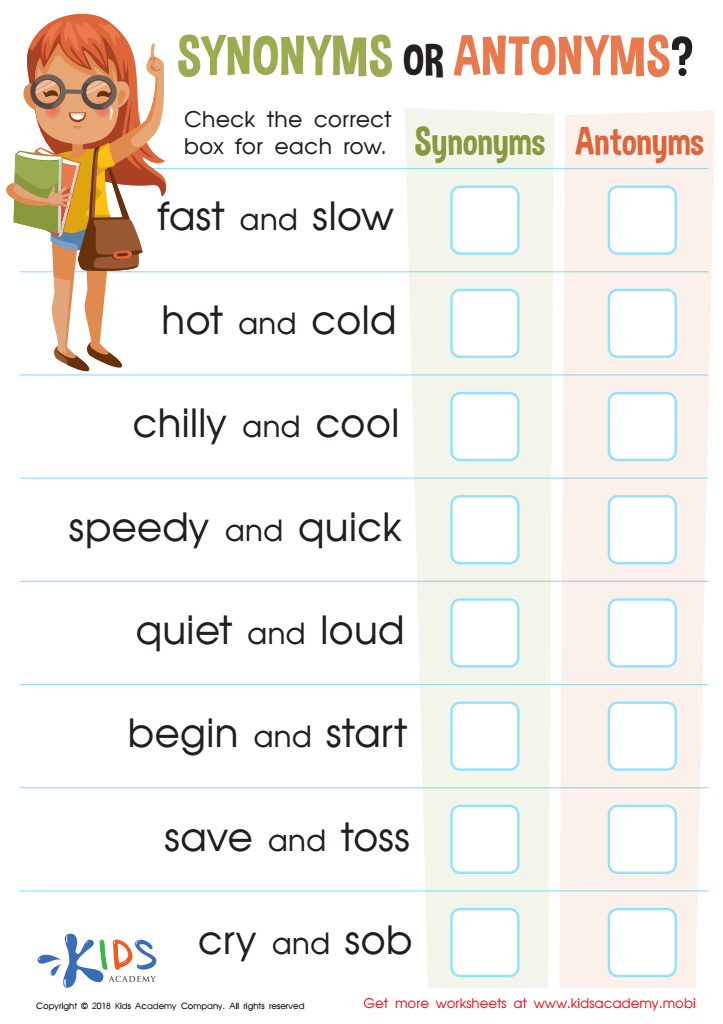Normal Building Vocabulary worksheets activities for 8-Year-Olds
1 filtered results
-
From - To


Synonyms or Antonyms: Assessment Worksheet
Normal Building Vocabulary worksheets activities play a crucial role in enhancing language proficiency, providing a structured and engaging way for learners of all ages to expand their vocabulary. These activities are designed with the primary objective of introducing new words, contextual meanings, and usage, which are essential elements for effective communication and comprehension.
One of the key reasons why Normal Building Vocabulary worksheets activities are useful is their ability to cater to diverse learning styles. Whether it's through matching exercises, fill-in-the-blanks, word definitions, or usage in sentences, these varied activities ensure that learners engage with new vocabulary in multiple contexts. This not only reinforces memory but also aids in understanding the nuances of language, such as synonyms, antonyms, and idiomatic expressions.
Moreover, these worksheets are systematically structured to build vocabulary progressively. Starting from basic to more complex terminologies, they help in gradually expanding a learner's language repository. This step-by-step approach makes learning less overwhelming and more achievable, boosting confidence and motivation among learners.
Additionally, Normal Building Vocabulary worksheets activities are excellent tools for both self-study and classroom learning. They provide immediate feedback when used in a classroom setting, allowing teachers to identify areas where students may need additional support. For self-learners, these activities offer a practical and flexible way to enhance their vocabulary at their own pace, without the need for constant supervision.
Furthermore, a strong vocabulary is the foundation of literacy skills. It enhances reading comprehension, writing abilities, and even critical thinking skills. By regularly engaging with vocabulary-building activities, learners can significantly improve their academic performance and communication skills, paving the way for success in various spheres of life.
In conclusion, Normal Building Vocabulary worksheets activities are an indispensable resource for anyone looking to enhance their language proficiency. Through structured, engaging, and versatile exercises, these activities not only build a robust vocabulary but also foster a lifelong love for learning and language exploration.

 Assign to the classroom
Assign to the classroom

.jpg)









